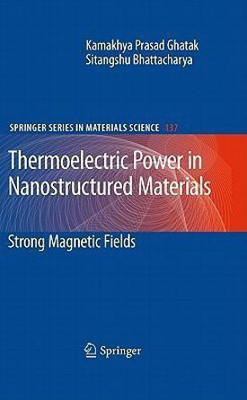Thermoelectric Power in Nanostructured Materials(English, Hardcover, Ghatak Kamakhya Prasad)
Quick Overview
Product Price Comparison
The merging of the concept of introduction of asymmetry of the wave vector space of the charge carriers in semiconductors with the modern techniques of fabric- ing nanostructured materials such as MBE, MOCVD, and FLL in one, two, and three dimensions (such as ultrathin ?lms, nipi structures, inversion and accumu- tion layers, quantum well superlattices, carbon nanotubes, quantum wires, quantum wire superlattices, quantumdots, magnetoinversionand accumulationlayers, qu- tum dot superlattices, etc. ) spawns not only useful quantum effect devices but also unearth new concepts in the realm of nanostructured materials science and related disciplines. It is worth remaking that these semiconductor nanostructures occupy a paramount position in the entire arena of low-dimensional science and technology by their own right and ?nd extensive applications in quantum registers, resonant tunneling diodes and transistors, quantum switches, quantum sensors, quantum logic gates, heterojunction ?eld-effect, quantum well and quantum wire trans- tors, high-speed digital networks, high-frequency microwave circuits, quantum cascade lasers, high-resolution terahertz spectroscopy, superlattice photo-oscillator, advanced integrated circuits, superlattice photocathodes, thermoelectric devices, superlattice coolers, thin ?lm transistors, intermediate-band solar cells, micro- tical systems, high-performanceinfrared imaging systems, bandpass ?lters, thermal sensors, optical modulators, optical switching systems, single electron/molecule electronics, nanotube based diodes, and other nanoelectronic devices.


